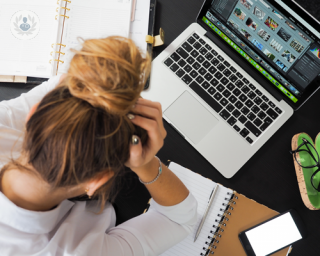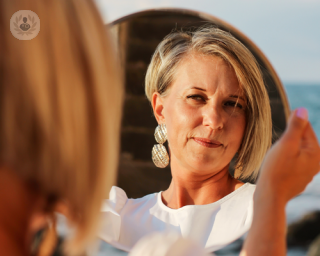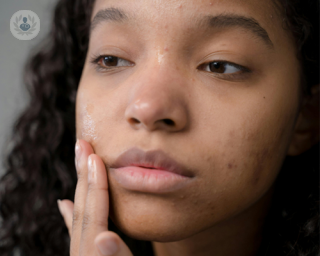What is self-esteem?
Self-esteem put simply, is how we feel about ourselves overall. It takes into account the self-love and positive regard you have for yourself. Hence, if you have healthy self-esteem, you would likely feel positively about yourself and about life itself too. Self-esteem develops over your lifetime, culminating from your various experiences and circumstances that eventually shape how you see yourself. Self-esteem comes from the opinions, value and beliefs you hold about yourself, which can be challenging to change.
What’s the difference between self-esteem and self-confidence?
Although these terms are often used interchangeably, they are not the same thing. Self-esteem, as described, is how we feel about ourselves, whereas self-confidence refers to how you feel about your abilities, which will vary between scenarios. Although they are different, they are related. To illustrate, if someone’s self-esteem improves, they are more likely to have increased self-confidence. On the other hand, it is also possible to have low self-esteem, but feel very confident about certain abilities you hold.
What is low self-esteem?
Low self-esteem is when, overall, you feel negatively about yourself and life in general.
What causes low self-esteem?
Everyone’s self-esteem is different, and factors that affect self-esteem will also differ too. The following are common factors that can precede low self-esteem:
- Being bullied
- Being abused
- Having mental health problems
- Stress
- Bereavement
- Work problems
- Body image issues
- Money problems
- Physical health issues
- Experiencing prejudice or discrimination
· Relationship problems (e.g. separation and divorce)
Low self-esteem can often begin during childhood where a child receives positive or negative messages from people such as their parents, siblings, teachers, friends, and other sources, such as social media . During childhood, it is often the negative messages that stick, which can be challenging to forget or let go of.
How can low self-esteem affect us?
Having low self-esteem will often make life challenges feel much more difficult to handle, whereas if your self-esteem is healthier, tackling the ups and downs of life can be more manageable. If you have low self-esteem, you might be more likely to avoid difficult situations or tasks. Having low self-esteem can also be harmful to our mental health, with problems such as depression and anxiety being related.
How can self-esteem issues be improved?
Self-esteem can be improved, and a good starting point can be to identify the negative beliefs you hold about yourself (e.g. thinking that you are not smart enough to apply for a new job). Equally, you should also identify things that you feel positively about yourself (e.g. that you are honest and reliable).
Other things that can help to improve self-esteem include:
· Build positive relationships and a support network
- Be kind to yourself
- Recognise your strengths
- Be more assertive
- Look after yourself physically
· Challenge yourself (e.g. don’t let your self-esteem stop you from something you want to achieve)
Baja autoestima
What is self-esteem?
Self-esteem put simply, is how we feel about ourselves overall. It takes into account the self-love and positive regard you have for yourself. Hence, if you have healthy self-esteem, you would likely feel positively about yourself and about life itself too. Self-esteem develops over your lifetime, culminating from your various experiences and circumstances that eventually shape how you see yourself. Self-esteem comes from the opinions, value and beliefs you hold about yourself, which can be challenging to change.
What’s the difference between self-esteem and self-confidence?
Although these terms are often used interchangeably, they are not the same thing. Self-esteem, as described, is how we feel about ourselves, whereas self-confidence refers to how you feel about your abilities, which will vary between scenarios. Although they are different, they are related. To illustrate, if someone’s self-esteem improves, they are more likely to have increased self-confidence. On the other hand, it is also possible to have low self-esteem, but feel very confident about certain abilities you hold.
What is low self-esteem?
Low self-esteem is when, overall, you feel negatively about yourself and life in general.
What causes low self-esteem?
Everyone’s self-esteem is different, and factors that affect self-esteem will also differ too. The following are common factors that can precede low self-esteem:
- Being bullied
- Being abused
- Having mental health problems
- Stress
- Bereavement
- Work problems
- Body image issues
- Money problems
- Physical health issues
- Experiencing prejudice or discrimination
· Relationship problems (e.g. separation and divorce)
Low self-esteem can often begin during childhood where a child receives positive or negative messages from people such as their parents, siblings, teachers, friends, and other sources, such as social media . During childhood, it is often the negative messages that stick, which can be challenging to forget or let go of.
How can low self-esteem affect us?
Having low self-esteem will often make life challenges feel much more difficult to handle, whereas if your self-esteem is healthier, tackling the ups and downs of life can be more manageable. If you have low self-esteem, you might be more likely to avoid difficult situations or tasks. Having low self-esteem can also be harmful to our mental health, with problems such as depression and anxiety being related.
How can self-esteem issues be improved?
Self-esteem can be improved, and a good starting point can be to identify the negative beliefs you hold about yourself (e.g. thinking that you are not smart enough to apply for a new job). Equally, you should also identify things that you feel positively about yourself (e.g. that you are honest and reliable).
Other things that can help to improve self-esteem include:
· Build positive relationships and a support network
- Be kind to yourself
- Recognise your strengths
- Be more assertive
- Look after yourself physically
· Challenge yourself (e.g. don’t let your self-esteem stop you from something you want to achieve)


Why is it helpful to get a diagnosis for ADHD?
Por Dr Chandan Aladakatti
2024-12-21
Getting a diagnosis for attention deficit hyperactivity disorder (ADHD) can be a significant and positive step for individuals who may have been struggling with symptoms that impact their daily life. A formal diagnosis provides clarity, validation and access to appropriate support and treatment. Ver más


Self-esteem and how it affects somebody's life
Por Miss Kiki Iordanidou
2024-12-21
Self-esteem is a concept referring to how we perceive and value ourselves. It’s a fundamental aspect of our emotional and psychological well-being, influencing how we think, feel and act in everyday life. Self-esteem can range from high (positive self-view) to low (negative self-view), and it significantly affects multiple areas of life. Ver más


How improving your self-esteem can lead to healthier relationships
Por Dr Kerry Ashton-Shaw
2024-12-21
Healthy relationships begin with healthy self-esteem. It’s easier said than done, however. So, how can we improve this essential part of the human psyche? Leading consultant clinical psychologist Dr Kerry Ashton-Shaw can help. She speaks to Top Doctors all about self-esteem in expert detail, considering the cycle that maintains low self-esteem and provides a helpful quiz we can take to get an indication of our levels of self-esteem. Ver más


Understanding adolescent acne
Por Dr Mary Sommerlad
2024-12-20
Leading consultant dermatologist Dr Mary Sommerlad provides a detailed look at adolescent acne in this informative article. Ver más
Doctores expertos en Baja autoestima
-
Dr Matina Sotrilli
PsicologíaExperto en:
- Terapia conductual dialéctica
- Baja autoestima
- Ansiedad
- Depresión
- Trastornos alimenticios
- Asertividad
-
Dr Isobel Horn
PsicologíaExperto en:
- Depresión
- Baja autoestima
- Ataques de pánico
- Ansiedad
- Trastorno por atracón
- Bulimia
-
Dr Edward Bloomfield
PsicologíaExperto en:
- Ansiedad
- Depresión
- Mental disorders
- Baja autoestima
- Estrés postraumático
- Autoestima y desarrollo personal
-
Dr Mary-Anne Smyth
PsicologíaExperto en:
- Baja autoestima
- Agotamiento
- Ansiedad
- Depresión
- Autoestima y desarrollo personal
- Duelo
-
Gabriela van den Hoven
PsicologíaExperto en:
- Ataques de pánico
- Depresión
- Baja autoestima
- Trastornos de adaptación
- Ansiedad
- Ver todos

The Fern Psychology
The Fern Psychology
Harley Street
No existe teléfono en el centro.
Si haces uso de este teléfono facilitado por TOP DOCTORS nos autorizas al tratamiento de tu teléfono para fines estadísticos y comerciales. Para más información, lee nuestra Política de Privacidad
Top Doctors
-
The Fern Psychology
Harley Street, W1G Marylebone LondonExperto en:
- Ansiedad
- Ataques de pánico
- Depresión
- Psicología
- Psicosis
- TDAH





